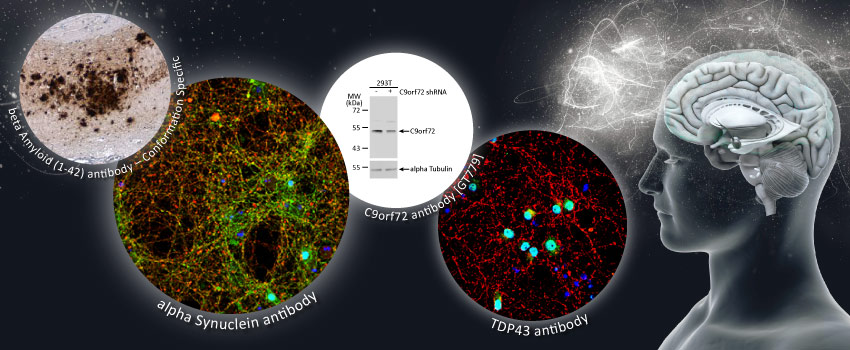 |
| Despite a diverse array of clinical manifestations and affected genes, many of the common neurodegenerative disorders share a similar molecular mechanism. Alzheimer's disease (AD), Parkinson's disease (PD), Huntington's disease (HD), amyotrophic lateral sclerosis (ALS) and prion disease are each characterized by the aggregation of mutated or misfolded proteins into amyloid inclusion bodies. Aggregation results when the accumulation of misfolded proteins exceeds the cell's ability to eliminate them via the ubiquitin-proteasome degradation pathway. Some evidence suggests that these inclusions may represent a cellular defense mechanism intended to sequester toxic oligomers or to induce autophagic elimination of the diseased proteins. Effective future strategies for treatment of these neurodegenerative disorders rely on the understanding of the basic pathways affected in these disorders. |
|
| GeneTex proudly offers an excellent catalog of high-quality antibodies to study the processes involved in neurodegenerative disorders, the majority of which are validated for multiple applications. Please view the table below of selected antibodies and consider whether they can help accelerate your research. |
|
Highlighted products |
|
Alzheimer's Disease (AD) |
|
|
|
|||||||||||||
|
Parkinson's Disease (PD) |
|
|
|
|||||||||||||
|
Huntington’s Disease (HD) |
|
|
|
|||||||||||||
|
Amyotrophic Lateral Sclerosis (ALS) |
|
|
|
|||||||||||||
|
Prion Disease |
|
|
|
|||||||||||||















